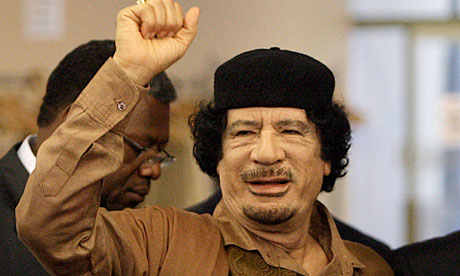Somalilandpress
Comments (8) Seattle, WA (Somalilandpress) — A woman from Burien, Washington has been charged with a hate crime for physically and verbally assaulting two Muslim women at a Tukwila gas station last weekend.The incident occurred at a Tukwila AM/PM gas station on Saturday evening when, according a charging documents, 37-year-old Jennifer Leigh Jennings accosted two Muslim women from Somali decent, calling them “terrorists” and “suicide bombers” before physically attacking them.
The victims, who do not want to be identified for fear of reprisal, are both of Somali decent and were wearing traditional Muslim attire.
The Washington chapter of the Council on American-Islamic Relations held a press conference Thursday morning to denounce the attack and raise awareness for what some see as a recent spike in Muslim hate crimes.
At the press conference, both victims said they are now afraid to leave their homes or show their faces in the community. Both are U.S. citizens and both called the incident “un-American.”
Jennings, who is also known as Jennifer Leigh Adams, was charged today with two counts malicious harassment, the state’s hate crime statute, for using the victims’ “race, ancestry, and nation of origin” as reason for the attack, prosecutors said.
The attack occurred as victims were trying to pump gas at the station after paying the clerk, but the pump had not been activated.
According to court documents, Jennings saw the pair trying to fill their gas tank and told the victims they should “go back to your country” after calling them “suicide bombers.”
One of the victims described how the incident began.
“A lady on the other side (of the gas station) drives up and starts verbally assaulting me,” she said. “She’s calling me a suicide bomber, a terrorist. She’s saying, ‘What are you doing here? Are you trying to bomb our gas stations? Our country?’”
Police said the victims did not respond to Jennings’ taunts, but when one of the two went back in the store to get the clerk to activate the pump, Jennings slammed their car door on the legs of the other victim.
The woman then got out of the car and Jennings kicked her, according to police.
The attack shook both victims to the bone, and they hope it opens people’s eyes about the seriousness of hate crimes.
“As Muslims, we’re human beings and we deserve the same respect as everybody else,” one victim said. “This country is a melting pot and there’s so many diverse people, I think we should all respect each other and (each other’s) space.”
Jennings was arrested arrested the scene and while being transported to jail told a police officer “Ya, I shouldn’t of called them sand (expletive) or other stuff like that.”
Jennings is scheduled to be arraigned November 2.
By Mohamed H. Gulaid



 Dhame Abdulkadir, a government military officer in Mogadishu’s Hodan district, told reporters in the capital that Al Shabaab launched hit and run attacks on military bases in the city three times. He said government forces inflicted severe losses on the insurgents and confiscated many assault rifles from them.
Dhame Abdulkadir, a government military officer in Mogadishu’s Hodan district, told reporters in the capital that Al Shabaab launched hit and run attacks on military bases in the city three times. He said government forces inflicted severe losses on the insurgents and confiscated many assault rifles from them.
 August 2010 - UNODC has recently published a useful new
August 2010 - UNODC has recently published a useful new  July 2010 - UNODC has launched a new strategy for the treatment of drug dependence to promote evidence-based and ethical treatment policies worldwide. The goals of TREATNET center around increasing access to quality drug dependence treatment services, reducing the negative health and social consequences of drug use and dependence, and creating local ownership and sustanability by involving staff from national and local government agencies, universities and treatment centres in project countries. UNODC has published an informational TREATNET brochure in all languages:
July 2010 - UNODC has launched a new strategy for the treatment of drug dependence to promote evidence-based and ethical treatment policies worldwide. The goals of TREATNET center around increasing access to quality drug dependence treatment services, reducing the negative health and social consequences of drug use and dependence, and creating local ownership and sustanability by involving staff from national and local government agencies, universities and treatment centres in project countries. UNODC has published an informational TREATNET brochure in all languages:  June 2010 - The non-medical use of prescription drugs controlled under the
June 2010 - The non-medical use of prescription drugs controlled under the  May 2010 - Treatment offered as an alternative to criminal justice sanctions has to be evidence-based and in line with ethical standards. UNODC convened a technical consultation of experts from 28 to 30 October 2009 in Vienna where 20 reserchers, policy makers and practitioner from 13 countries worldwide participated. On the basis of the discussions, UNODC produced this discussion paper which outlines a model of referral from the criminal justice system to the treatment system that is mor e effective than compulsory treatment. This model of referral results in less restriction of liberty, is less stigmatising and offers better prospects for the future of the individual and the society.
May 2010 - Treatment offered as an alternative to criminal justice sanctions has to be evidence-based and in line with ethical standards. UNODC convened a technical consultation of experts from 28 to 30 October 2009 in Vienna where 20 reserchers, policy makers and practitioner from 13 countries worldwide participated. On the basis of the discussions, UNODC produced this discussion paper which outlines a model of referral from the criminal justice system to the treatment system that is mor e effective than compulsory treatment. This model of referral results in less restriction of liberty, is less stigmatising and offers better prospects for the future of the individual and the society. 
 UNODC supports Member States in addressing drug use and drug addiction as any other health disorder: i.e. by implementing drug use prevention interventions and providing drug dependence treatment and care services, which are based on scientific evidence and on ethical standards. Click on the links below to know more about UNODC activities and resources in:
UNODC supports Member States in addressing drug use and drug addiction as any other health disorder: i.e. by implementing drug use prevention interventions and providing drug dependence treatment and care services, which are based on scientific evidence and on ethical standards. Click on the links below to know more about UNODC activities and resources in:










